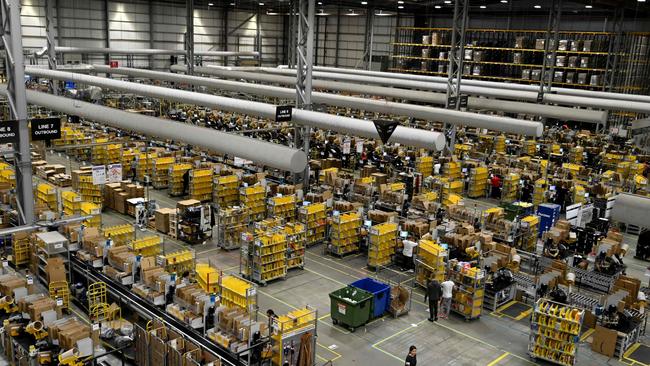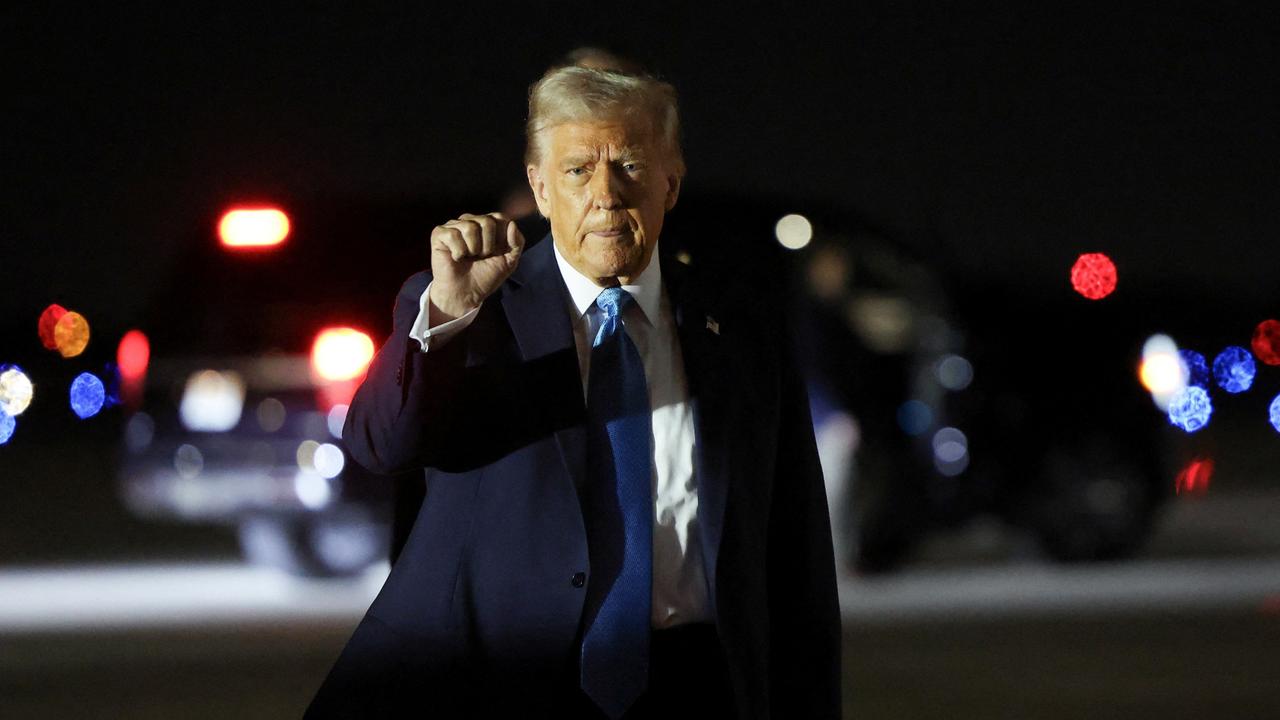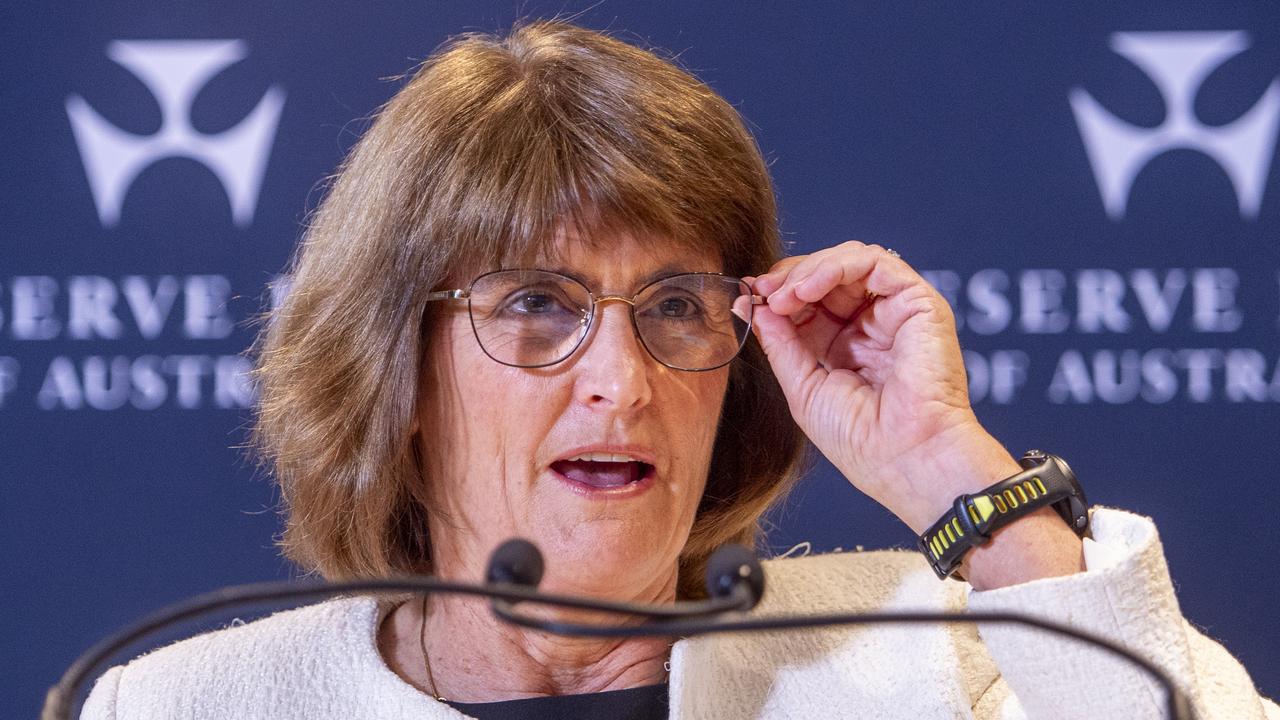Amazon profit show resilience even as labour, supply crunch weigh on results
The e-commerce giant saw earnings almost double thanks to a huge boost from its investment in electric car company, Rivan.

Amazon said profits nearly doubled in the critical holiday period, as the company managed to control labour and supply costs better than expected and saw gains in its cloud-computing and advertising businesses.
The company saw a huge boost in the quarter from its investment in electric-vehicle maker Rivian Automotive, adding nearly $US12bn ($16.8bn) to its operating income in the period on gains from that company’s IPO in November last year. That accounted for the most of Amazon’s profits.
The tech and e-commerce giant reported $US137.4bn in quarterly revenue, up from $US125.6bn in the same period a year ago. Profits rose to $US14.3bn, from $US7.2bn. The results were a surprise to some nalysts who expected earnings to be more subdued as Amazon dealt with rising costs on a variety of fronts.
Amazon shares rose more than 14 per cent in after-hours trading on Thursday night.
The company signalled a more positive outlook than previous quarters even though growth has slowed. It said it expected operating income to be between $US3bn and $US6bn for the current quarter, compared with $US8.9bn during the first quarter 2021.
Earnings per share were more than seven times the average of $US3.63 expected by analysts polled by FactSet.
“Over the holidays, we saw higher costs driven by labour supply shortages and inflationary pressures, and these issues persisted into the first quarter due to Omicron,” chief executive Andy Jassy said. “Despite these short-term challenges, we continue to feel optimistic and excited about the business as we emerge from the pandemic.”
Amazon said it would raise the price of its Prime membership service from $US119 a year to $US139, citing higher costs related to wages and transportation, as well as continued expansion of benefits under the membership. Memberships include access to Amazon’s fast delivery service as well as video streaming and other entertainment.
Even as Amazon shares rallied on the news, several of the world’s biggest technology companies struggled, a signal that the tech boom that powered the US market and some of the country’s economic resilience in recent years is coming under pressure. While many saw their shares rise after reporting strong sales and earnings growth in the fourth quarter, others fell precipitously in the face of a labour shortage, changes in advertising markets and inflation pressure.
Meta Platforms (formerly Facebook) reported a decline in its user base and said its advertising business had been hit hard by Apple’s new privacy measures. Meta’s shares fell by more than 20 per cent, and shares of PayPal and Spotify fell by similar amounts.
Amazon fared better than many others during the pandemic, recording record earnings as consumers accelerated a shift to online shopping. The e-commerce market received a huge windfall, and no company benefited more than Amazon, which accounts for 41 per cent of all sales online.
But lately investors had come to fear that Amazon’s tremendous growth would slow amid global supply chain disruptions and labour challenges. Amazon executives said last year that the company would spend roughly $US4bn in the fourth quarter to deal with higher freight and shipping costs, labour shortages and global supply-chain challenges. Amazon has boosted its pay for workers to an average of $US18 an hour and offered sign-on bonuses of as much as $US3000 in some areas.
The results showed investor concerns were well founded. Amazon lost money in its sprawling e-commerce business, with about $US206m in operating losses in the US and $US1.63bn internationally.
“We continued to see increased customer demand in sales during the remainder of 2021, even as the economy opened back up,” Amazon chief financial officer Brian Olsavsky said.
He said the company feels positive about its labour situation at the start of the new year, despite being affected by absent workers out sick from Covid-19. Amazon’s global headcount now totals about 1.6 million after adding roughly 140,000 employees during the fourth quarter.
Still, despite struggles in its e-commerce operations, Amazon was able to lean even more on new and emerging business lines, including its investment in Rivian, which saw out-size gains in an IPO. Amazon also saw tremendous growth in its highly profitable cloud-computing business and fast-growing advertisement segment.
Amazon Web Services, or AWS, which rents computing, storage and networking capability to users, saw fourth-quarter revenue rise by about 40 per cent to $US17.8bn, while ad sales grew 32 per cent to $US9.7bn. The cloud-computing unit accounted for more than $US5bn in operating income.
Meanwhile, the advertising division has surged as a result of new ad opportunities across Amazon’s array of businesses.
Amazon is starting the new year with an eye on continued expansion in its business segments, particularly in entertainment. The company this year will begin to have exclusive video rights to Thursday Night Football, and it is waiting to close its acquisition of the Hollywood studio MGM, which is expected to bring an array of notable titles under the company’s name. Amazon agreed to pay $US9bn for MGM, including debt. The Federal Trade Commission is reviewing the deal.
The company continues to deal with unionisation campaigns. Union organisers have pledged to push Amazon to alter its working standards. The company, which opposes the organising efforts, has said it is trying to listen to its workers better and has added benefits and safety training.
The Wall Street Journal


